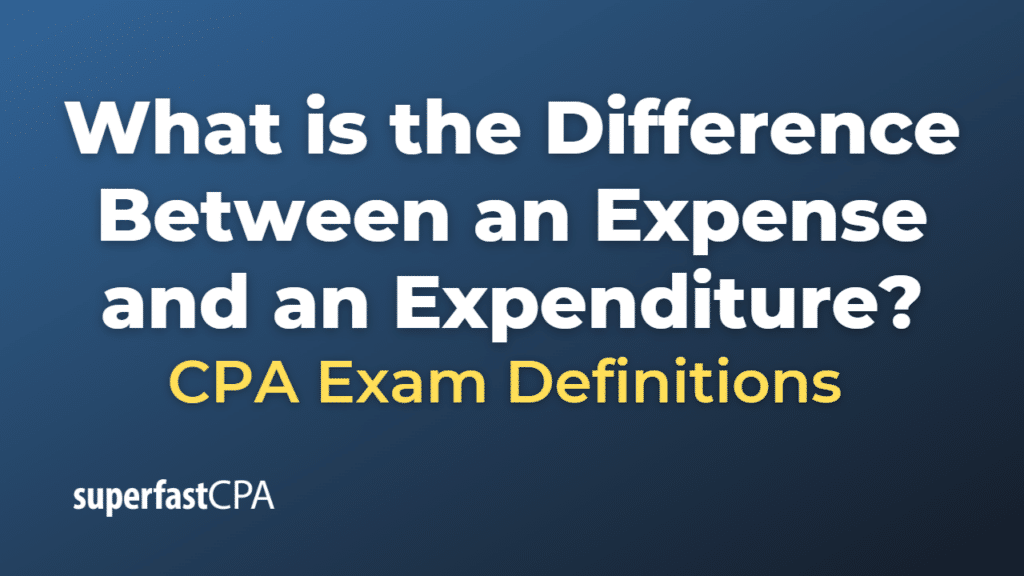Difference Between an Expense and an Expenditure
Expenses and expenditures are both outflows of cash or other resources, but they are used in different contexts and have different implications on financial reporting.
- Expense: An expense is a cost that is reported on the income statement and is incurred to generate revenue in the current accounting period. Expenses are matched with revenues according to the matching principle of accounting. When a cost is recognized as an expense, it impacts the company’s net income. Examples of expenses include salaries, rent, utilities, depreciation, and interest expense.
- Expenditure: An expenditure is an outflow of cash or other resources, but it is not necessarily charged to expense in the period the cash is spent. Expenditures can be for acquiring assets (capital expenditures), reducing liabilities, or distributing to owners (dividends). These types of expenditures are not immediately recognized as expenses because they are expected to provide economic benefits beyond the current accounting period.
Let’s consider an example. If a business purchases a piece of machinery for $10,000, this is an expenditure. However, the entire $10,000 is not immediately recognized as an expense. Instead, the cost of the machinery is capitalized as an asset on the balance sheet and then gradually expensed over the machinery’s useful life (as depreciation expense) on the income statement.
So, the main difference between an expense and an expenditure is the timing of when the cost is recognized on the financial statements. An expense is recognized immediately and affects net income, while an expenditure may be capitalized as an asset if it’s expected to provide future economic benefits, and then gradually expensed over time.
Example of the Difference Between an Expense and an Expenditure
Let’s consider two scenarios that involve both an expenditure and an expense:
Scenario 1: Rent Payment
XYZ Company pays $5,000 per month in rent for their office space.
- Expenditure: When XYZ Company pays the $5,000, it’s an expenditure because it’s an outflow of cash.
- Expense: In the same accounting period when the rent is paid, the $5,000 is also recorded as an expense in the income statement because it is associated with the use of the office for that particular period to generate revenue. The expense decreases the company’s net income for that period.
Scenario 2: Machinery Purchase
XYZ Company buys a piece of machinery for $120,000. The machinery has a useful life of 10 years with no salvage value.
- Expenditure: When XYZ Company pays the $120,000, it’s an expenditure because it’s an outflow of cash.
- Expense: However, instead of the $120,000 being recorded as an expense immediately, it is capitalized as an asset on the balance sheet because it’s expected to generate revenue over multiple periods (10 years in this case). Each year, XYZ Company would record a depreciation expense of $12,000 ($120,000 / 10 years) on the income statement. This expense reduces the company’s net income over the useful life of the machinery, not immediately when the cash is spent.
So, in these examples, all cash outflows are expenditures, but how and when these outflows are recorded as expenses depends on their nature and the accounting principles.












